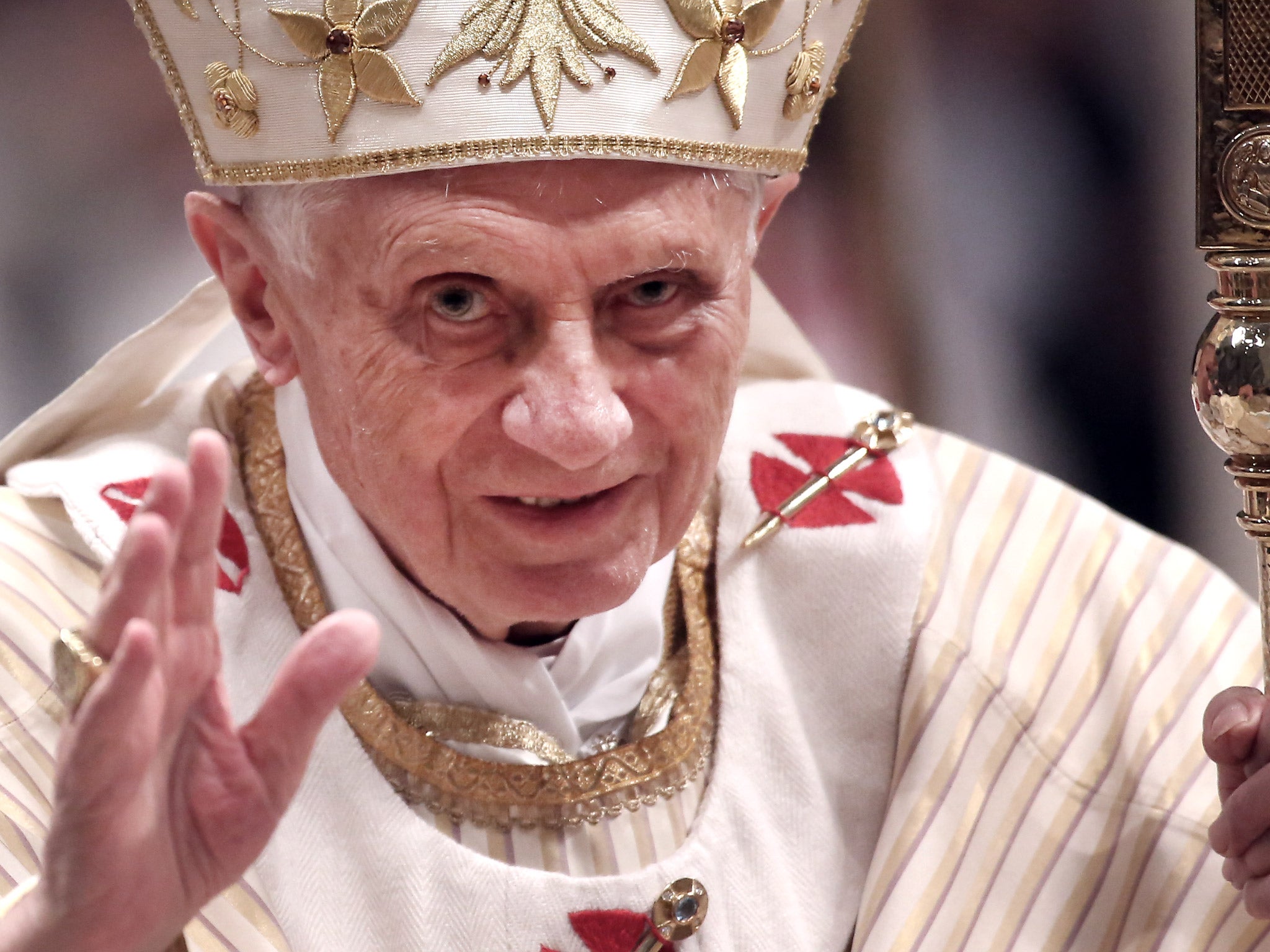The Pope’s resignation: Will the Church move towards progressive Christianity?
Gossip is also rife that there could be further disclosures about the reluctance or inability of the hierarchy to properly address child abuse

Your support helps us to tell the story
From reproductive rights to climate change to Big Tech, The Independent is on the ground when the story is developing. Whether it's investigating the financials of Elon Musk's pro-Trump PAC or producing our latest documentary, 'The A Word', which shines a light on the American women fighting for reproductive rights, we know how important it is to parse out the facts from the messaging.
At such a critical moment in US history, we need reporters on the ground. Your donation allows us to keep sending journalists to speak to both sides of the story.
The Independent is trusted by Americans across the entire political spectrum. And unlike many other quality news outlets, we choose not to lock Americans out of our reporting and analysis with paywalls. We believe quality journalism should be available to everyone, paid for by those who can afford it.
Your support makes all the difference.It’s an understatement to say that the resignation of Pope Benedict XVI has certainly surprised and intrigued many people, irrespective of their religious affiliation or lack of it.
As an international figure, moral commentator and leading one of the world’s biggest multi-national organisations of 1.2 billion members, the Pope commands attention if not sympathy and support. Coming as his announcement does, a couple of days before Ash Wednesday, there is already a joke circulating about what the Pope is giving up for Lent.
A friend commented that, as the first Pope in 600 years to be in a position to influence the choice of successor, he will have plenty of temptation. Another friend in the Church who monitors these things advises that although he himself will not be part of the Conclave that elects, he has personally created 67 of the 117 members who will.
Some people are puzzled by the motive of the Pope’s resignation. Has he taken advice from the outgoing Archbishop of Canterbury that some problems just won’t go away? Muses one fellow Vicar.
It is not a typical papal action and there is no age limit on the holder of the See of Rome. The last pope to resign was Gregory XII in 1415. He resigned in order to end a schism caused by rival popes in troubled times. Benedict XVI described his reasons in terms of the pressures on him:
“…in today’s world, subject to so many rapid changes and shaken by questions of deep relevance for the life of faith, in order to govern the barque of Saint Peter and proclaim the Gospel, both strength of mind and body are necessary, strength which in the last few months, has deteriorated in me to the extent that I have had to recognize my incapacity to adequately fulfil the ministry entrusted to me”.
This is an unusual statement as Church leaders usually trumpet their incapacity, quoting for example 2 Corinthians 4.7, suggesting that they are merely frail clay pots whose power is divine and not human.
The gossip is rife, therefore, that there could be other reasons, such as further disclosures about the reluctance or inability of the hierarchy to properly address child abuse. David Gibson has said, “"Failure to hold members of the hierarchy responsible is really going to be the lasting legacy of this pope in most people's minds."
Most colleagues of mine committed to progressive Christianity see Benedict XVI as having failed to really address the contemporary world and build on the modernising impetus and legacy of Vatican II.
On the fifth anniversary of his election as Pope, Hans Kung wrote an open letter to the Pope. Both of them were former colleagues at the University of Tubingen and the youngest theologians at Vatican II. Kung described his profound concern that the Catholic Church, “…now finds itself in the worst credibility crisis since the Reformation”.
Kung’s view of Benedict XVI is that:
“When it comes to facing the major challenges of our times, his pontificate has increasingly passed up more opportunities than it has taken”. Kung lists a rosary of failed opportunities: rapprochement with the Protestant churches, long term reconciliation with Jews, real dialogue with Muslims, reconciliation with colonised indigenous peoples in Latin America, permission for Africans to use birth control, real dialogue with the scientific world, making the spirit of Vatican II the compass for the whole Catholic Church, rather adding qualifications to the conciliar texts and repeatedly taking a stand against it, though it is a supreme authority.
Kung speaks for many progressive Christians in all churches who agree that these form the legacy of God’s Rottweiler, the enforcer of Roman Catholic orthodoxy, and who share his disillusionment.
Ian Stubbs is Vicar of Glossop Parish Church in Derbyshire
Join our commenting forum
Join thought-provoking conversations, follow other Independent readers and see their replies
Comments